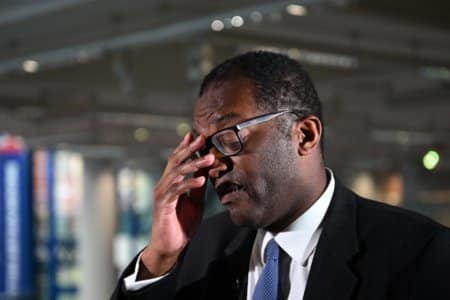
You can’t ignore accents. Your ears can’t unhear them.
Take Appa from “Kim’s Convenience” or Gloria Delgado-Pritchett in “Modern Family,” for example.
You just know Appa hails from Korea and speaks English with a Korean accent, while Colombian-born Delgado-Pritchett speaks with her iconic Latin American accent.
The thing about accents, and Engish accents, in particular, is that you can tell when someone didn’t grow up speaking English as their first language.
And they likely have, or still feel, inferior to those who speak like they’re a cast member of “Bridgerton,” who uses the King’s English – also known as the Queen’s English, BBC English, Oxford English, or its most proper form, Received Pronunciation (RP).
In “Abbott Elementary,” you’ll find the cast using a South Philadelphia accent. Australian animated children’s show “Bluey” uses the country’s native accent.
When you’re a non-British, non-American, and non-Australian person travelling or studying in these countries, you’re very aware of what your English accent sounds like.
Impressions still matter, and that still includes how you sound to everyone, from the cafe barista to the professor marking your papers and recruiter deciding whether to hire you for an Optional Practical Training job.
Which then begs the question: Do accents affect any of these opportunities? Do you have to pick up a standard English accent to be liked, loved, and respected?

Irish actress Nicola Coughlan is most known for her roles in “Derry Girls” and “Bridgerton,” both of which she used different accents from her native Galway Irish accent. Source: AFP
Famous people who changed their English accents
Public figures born within the UK and the US have adopted new accents to pursue success.
Margaret Thatcher, the former prime minister of the UK, received coaching from Hollywood vocal coach Kate Fleming to lose her original Lincolnshire accent for a posher, upper-class one.
According to research, “British people tend to downgrade non-standard working-class accents and selected ethnic minority accents and upgrade accents historically perceived as more prestigious. This accent hierarchy has existed since the earliest surveys 50 years ago.”
In Hollywood, accent-switching happens almost daily.
For example, Tom Holland had to drop his English accent to sound like a true American hero in the Spider-Man movies, much like Christian Bale, who had to shelve his native Cockney accent for Batman’s American accent.
On another note: Will anyone forget Taylor Swift’s full-blown country accent during her country-pop princess days in Nashville, which is now gone?
Still, accents are distinctive markers of our origins. International students carry the identity of their home on their shoulders; their accent is a born trait to be proud of.
So why are Western accents, especially posher ones, favoured?

Believe it or not, out of 200 countries, only 22 have never experienced a British invasion. That’s 90% of the world. Source: AFP
Why is English the superior language?
Linguist David Crystal puts it simply, “Language is global for one reason only and that is the power of the people who speak it.”
Trade, politics, and culture were first dominated by the use of Greek and Latin before they were replaced by French in the 17th and 18th centuries.
Now, English — with all its complications — is the lingua franca.
English is a very weird and confusing language to learn… pic.twitter.com/m6dKgnNNrh
— AccentPerfect (@accentPerfect) October 17, 2015
We can thank the widespread use of English through — as you would’ve guessed — British colonialism. From Africa to Asia to the Caribbean, it became the language of government, schools, and trade.
Then, the Industrial Revolution hit, and later, the US became a political and economic leader. Suddenly, English was everywhere. Now? It’s the official language of 67 countries.
But English hasn’t stayed the same everywhere. It’s shaped by local cultures, creating many accents and dialects.
Linguist Rob Drummond told The Guardian that the UK alone has tons of accents because of waves of migration by the Celtic, Germanic, Anglo-Saxon, and more.
And it’s the same story elsewhere. Just look at Singapore, where Singlish blends English with Malay, Chinese, and Tamil.
As the world becomes more connected, English accents outside the US and UK are more accepted as people become more familiar with them. But how easy they are to follow? That depends on who’s listening.
What’s it like studying abroad if you don’t have a UK or US English accent
Disclaimer: With the exception of ex-Singaporean Prime Minister Lee Kuan Yew, these case studies were taken from Study International’s staff in Malaysia. Through further research, we have discovered that these are universal experiences.

The main difference between British and American English is how the letter “r” is pronounced. Source: AFP
Improvise, adapt, and overcome
For Lee Lian Kong, adjusting her accent was necessary when studying at the University of West England in Bristol, UK and the University of Evansville in the US state of Indiana.
“Whenever I spoke in my native accent, Malaysian, I was met with blank or semi-blank faces,” she shared. “So when I was in Indiana, I developed a generic American accent by mimicking those around me. Pretty easy and pretty effective.”
When she moved to the UK, she continued using the American accent to make communication more efficient with British housemates and professors. “Don’t have time to waste. I just wanted to get my message across,” she says. “I’ve got a law degree to earn and Europe to explore!”
When confusion strikes out of the blue
There was a single moment in Kai Cheng’s experience studying in the UK that would influence how she interacted with non-Malaysians afterwards. She was chatting with a fellow Malaysian flatmate in a communal kitchen when another British flatmate walked in. Out of genuine curiosity, he asked, “What language are you guys speaking in?”
It was English.
“It was quite eye-opening — to be speaking proper, grammatically correct English, and still have it mistaken for another language altogether,” Cheng says.
“Following that experience, I definitely had, and still have, moments when I’m speaking to non-Malaysians and being keenly aware that they might not understand me completely.”

In Singlish, you’d say: “Singapore is so popular for travel, ’cause got diverse culture, attractions like Marina Bay Sands, plus food confirm shiok (meaning ‘shock,’ which refers to how you feel after you eat the food) — hawker centre is cheap and good!” Source: AFP
When language connects but also divides
A study found that while Singlish helps Singaporean students overseas connect with fellow Singaporeans, some feel embarrassed and change how they speak. But this switch doesn’t pass the vibe check for some people.
Emily Mar saw this happen while in Melbourne. She had a Malaysian friend with a large friend group, including Australians. Over time, he developed an accent but was criticised by other Malaysians for trying to “sound white.”
There’s a world beyond the Western perimetres
Sometimes, it’s the most passing comments that leave you questioning the way the world works. Sarah Jamil would be blacked out in her bedroom if she took a shot each and every time an American person told her she spoke “perfect English with no accent.”
Yes, on a surface level, it’s a well-intentioned compliment she received while studying in the US.
On the flip side, it spurred a thought in her: do people there really think the rest of the world is incapable of learning and speaking pitch-perfect English?
The world’s made up of thousands of ethnicities. There’s no such thing as “no accent.”

The Singaporean government went as far as to launch the Speak Good English Movement to phase out Singlish. Source: AFP
English accent vs policymakers
A non-American or British English accent can face criticism not just abroad but at home as well. The Singaporean sitcom “Phua Chu Kang” gained fame for its Singlish-speaking protagonist, but the government wasn’t a fan.
Then-Senior Minister Lee Kuan Yew warned that “the more the media makes Singlish socially acceptable, the more we make people believe that they can get by with Singlish. This will be a disadvantage to the less educated half of the population.”
How to develop a ‘Western’ English accent
Study abroad and live amongst the locals
In 2007, a study showed that English university students who moved out of their local cities into a new region to study had shifted their native accent after two years of observation.
It’s an indicator that the people, environment, and culture you surround yourself with do affect your accent. According to an expert, it’s a way for some people to develop a keen “sense of belonging in a new environment.”
A user on Quora says, “I moved to the US from England 2 ½ years ago and I’ve noticed a few slight changes — softening the ‘t’ in words like ‘water,’ hardening the ‘ch’ in ‘schedule,’ etc. I even caught myself saying ‘to-MAY-to’ a couple of times.”

BTS’s RM, a worldwide K-pop star renowned for his English-speaking skills, started his English learning journey by watching “Friends.” Source: AFP
Consume Western media content
“Watching movies is a great way for you to improve your English, especially your listening and speaking skills,” English Engine writes on LinkedIn. “Films are not usually created for English language learners — they are made for native English speakers. Therefore, the language is exactly how you hear it in real life.”
While watching a Western movie, TV show, or YouTube video as a passive form of entertainment isn’t going to change your accent — especially since it’s harder to pick up a new accent as an adult than as a child — placing that habit as part of a learning strategy is.
Pay close attention to the way the actors pronounce their phrases and vowels, and pause the movie or TV show to repeat it for yourself. It’s also important to remain consistent with the content you consume for learning so you don’t lose the habit.

Research conducted by Preply found that British, Irish, and Australian accents are perceived as the most attractive. Source: AFP
A wildcard — develop your musical skills
Let’s face the truth: hardly everyone is born adept and talented at music, especially when it comes to vocals. If you’re one of the lucky ones, a musical prodigy, whether born or taught, you’re about to get even luckier.
Researchers on Frontier found that people with a firm musical grasp are better at “oral language imitation tasks.” After investigating 27 instrumentalists and 33 vocalists, they discovered that the vocal flexibility and vocal-motor training of singers increase their capability in speech imitation.
In other words, adopting an accent is easier when you’re a Mariah or Adele, i.e. you’ve got intensive vocal and singing training.










